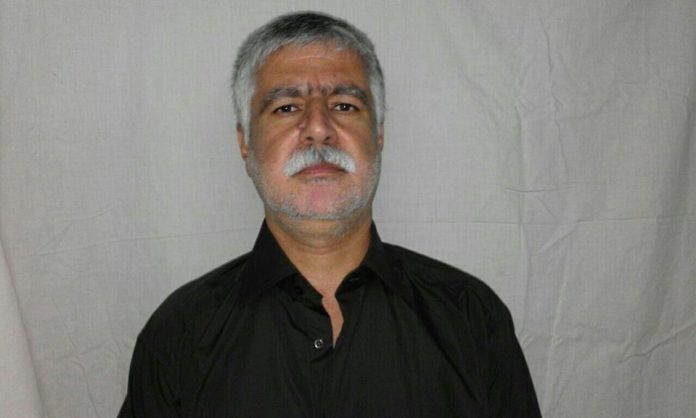Kurdish-Iranian Political Prisoner Denied Hospitalization for Stomach Tumor

JULY 22,
2019
Mohammad Nazari Has Been Imprisoned Since 1994
Imprisoned for more than 25
years, Kurdish-Iranian political prisoner Mohammad Nazari has been denied
hospitalization to receive tests for a tumor in his stomach, his lawyer told
the Center for Human Rights in Iran (CHRI) on July 19, 2019.
“Sometime ago, Mohammad started
having really bad coughs,” said attorney Mohammad Hossein Aghasi. “A month and
a half ago, at my request, he was taken to the hospital and got an MRI and some
tests.”
“Ultimately, the doctor
discovered a tumor in his stomach and said Mohammad should be admitted for
treatment that day, but the agents who were accompanying him said they had to
return him to prison unless a judge grants him permission,” he added.
“He was returned to prison and
scheduled to go back to the hospital on July 18 to have the tumor tested to see
if it’s benign or malignant, but so far this has not happened and we’re
extremely concerned,” Aghasi said.
Political prisoners in Iran, including elderly inmates, are singled out for harsh treatment, which often includes denial of medical care. The threat of withheld medical care has also been used as
an intimidation tool against prisoners who
have challenged the authorities or filed complaints.
Nazari, 48, has been
incarcerated since being arrested by agents of the Islamic Revolutionary Guard
Corps (IRGC) on May 30, 1994. He was ultimately imprisoned for being a member
of the outlawed Democratic Party of Iranian Kurdistan.
“Nazari told me he had been
tortured during interrogation and forced to accept the charge but he later
recanted,” Aghasi told CHRI.
Initially, Branch 1 of the
revolutionary court in the city of Mahabad, and Branch 1 of the Revolutionary
Court in Orumiyeh, both in West Azerbaijan Province, sentenced Nazari to death.
Although his appeal failed, in
1999 a pardon issued on the occasion of the Islamic festival of Eid al-Adha
reduced his sentence to life imprisonment.
Aghasi has requested for his
client to be paroled based on articles 10, 99, 120 and 728 of Iran’s Islamic Penal Code, but so far the
authorities have not acknowledged Nazari’s eligibility.
For the past 25 years, Nazari
has never been allowed to go on furlough (temporary leave), not even to attend
the funerals of his father, mother and sister and brother.
He has spent time behind bars
in Mahabad Central Prison, Rajaee Shahr Prison in Karaj, west of Tehran, and
currently in Orumiyeh Central Prison.
“At this point, all I can do is
informing the public,” Aghasi said. “My request for a judicial review of my
client’s case was denied two years ago and my requests for medical attention
have been left unanswered.”
In July 2019, human rights experts expressed serious concern
over Iran’s ongoing denial of medical care to detainees.
No comments:
Post a Comment